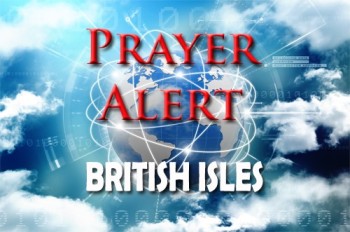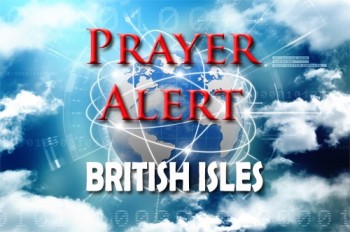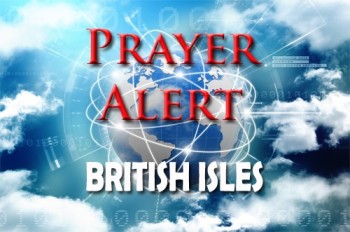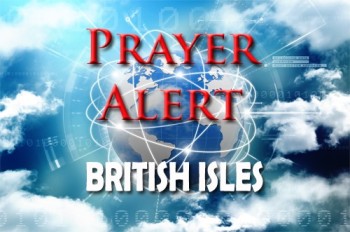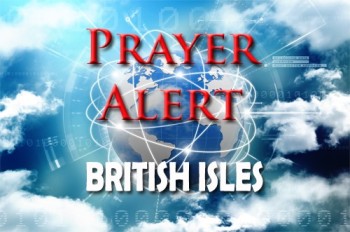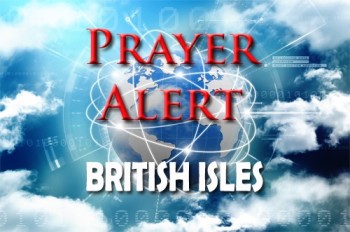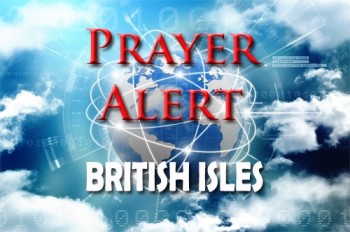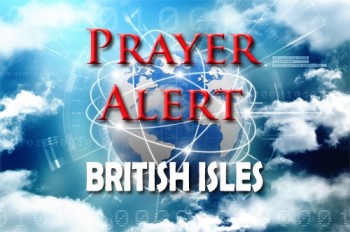Displaying items by tag: British Isles
Justice system: Lammy wants to restrict the right to a jury trial
Major changes to the justice system in England and Wales are being considered as justice secretary David Lammy proposes restricting the right to a jury trial for many criminal cases. Only those accused of the most serious offences - such as rape, murder, and manslaughter - would be guaranteed a jury; all other defendants facing serious charges would be tried by a judge alone. The proposals aim to address record delays and a backlog of more than 78,000 Crown Court cases, which could rise to more than 100,000 by 2030 without intervention. Supporters say urgent reform is needed to ensure timely justice for victims, but the chair of the Criminal Bar Association, which represents criminal barristers, has said: ‘Their actions will destroy a criminal justice system that has been the pride of this country for centuries, and destroy justice as we know it. Juries are not the cause of the backlog. The cause is the systematic underfunding and neglect that has been perpetrated by this government and its predecessors for years.’
Man arrested in connection with huge pile of waste
Authorities in Oxfordshire are working to tackle one of the most serious fly-tipping incidents the region has seen, after a massive illegal waste pile - around 150 metres long and up to six metres high - was discovered on farmland near Kidlington. The Environment Agency has declared the situation a critical incident due to public safety and environmental risks, particularly with the site’s proximity to the River Cherwell. Following months of overnight dumping by organised criminals, a court order secured in late October halted further tipping, and the location remains sealed off as a live crime scene. A 39-year-old man from the Guildford area has now been arrested as part of a major investigation. Officials are monitoring potential contamination, though no signs of hazardous waste breakdown have been detected so far. Keir Starmer said that ‘all available powers’ would be used to make those responsible pay for the clean-up: a similarly huge amount of illegally dumped waste, in Kent, will probably take up to a year to remove.
A tragic accident, but God is still walking with him
Kelvin Burke’s life was for ever changed at age 23 when a tragic accident in the Lake District left him a paraplegic, ending his promising hockey career and dreams of the Olympics. Raised in a strong Christian family in Northern Ireland, he had already seen the devastating effects of IRA violence on others, including his beloved hockey teacher. After the crash, Kelvin fought for survival in hospital while believers around the world prayed. Though his physical future seemed bleak, he experienced deep encounters with God, including a vision of Christ sharing his tears and suffering which renewed his hope. He went on to lead youth ministry, train for ordained ministry, and later serve as a hospital chaplain, where he saw many come to faith and find healing. Though still longing for physical restoration, he gratefully testifies to God’s daily sustaining grace, a loving marriage, and a life used for God’s glory, echoing Jesus’ own prayer: ‘Not my will, but yours be done’.
Church almshouse to sell altarpiece to further its 600-year-old mission
The decision by a Dorset almshouse to sell a rare 15th-century Flemish altarpiece has opened an unexpected path toward expanding its longstanding mission of caring for those in need. The Almshouse of Saint John the Evangelist and John the Baptist in Sherborne discovered the artwork’s extraordinary value only after asking Sotheby’s to store it during building work. Expert analysis revealed that the oak triptych, depicting five miracles of Christ including the raising of Lazarus, was crafted in late-medieval Brussels and could fetch £2.5–£3.5 million at auction. The trustees unanimously agreed that selling the piece would best serve the local community, noting that the costs of securing, conserving, and insuring such a valuable object would be unsustainable for a small charity. Proceeds from the sale are expected to fund the remodelling of the almshouse to create six new independent-living homes and support ongoing maintenance of the Grade I listed building, furthering its 600-year-old mission.
Budget: differing views about how to rescue the economy
Kemi Badenoch has warned that the country risks bankruptcy if Labour raises taxes without reducing welfare spending. She accused Rachel Reeves of planning a ‘stealth tax bombshell’ in the upcoming Budget to fund increased benefits, including what most people believe is likely - scrapping the two-child benefit cap to address child poverty. Freezing income tax thresholds is also expected, which would draw more workers into higher tax brackets. Badenoch argued that welfare cuts are necessary for long-term economic stability, saying her party would restore the cap if returned to power. Labour strongly rejected her claims, warning Conservatives would return the country to austerity, resulting in cuts to schools, hospitals, and policing. Other parties also criticised the Conservatives’ stance; Nigel Farage has proposed deeper spending cuts, and the Liberal Democrats have called both major parties punitive toward the public. As competing visions collide, the Budget will be a major test of how Britain balances fairness, economic security, and social responsibility.
Starmer tells faith leaders of his concern about religious cohesion
Keir Starmer has urged religious leaders to help strengthen social unity in the UK, expressing deep concern about divisions affecting communities nationwide. Speaking at a Downing Street reception during Interfaith Week, he praised the vital contributions of faith groups while acknowledging that recent violence - including attacks on a Manchester synagogue and a mosque in East Sussex - has tested interfaith harmony. Starmer said the country is at a fork in the road, with a choice between shared patriotic renewal or a descent into toxic division marked by racism, hostility, and rising online abuse. He said he wanted to serve the whole country ‘in all its reasonableness, its practicality, its tolerance, its live and let live, and its diversity.’ He finished by making a commitment to continued work with faith leaders to bring about change, commenting, ‘This has to be a partnership. We will play our part, but we recognise we can’t do it on our own.’
Immigration: home secretary’s new proposals
Shabana Mahmood is under mounting pressure to provide clarity and compassion after confirming that only a ‘few hundred’ asylum seekers will initially be admitted under the UK’s newly-announced ‘safe and legal’ routes. The home secretary has paired these routes with strict measures, copying Danish policies, aimed at deterring illegal crossings, including asset confiscation and the enforced removal of families who decline financial incentives to return home. Critics - including Labour MPs, refugee advocates, and UNHCR - argue that such limited pathways will do little to reduce dangerous Channel crossings or support those fleeing war and persecution. Organisations warn that people cannot afford to wait years for routes to expand, and that uncertainty will only deepen despair. Additionally, proposals to withdraw financial support from families with denied claims have sparked moral outrage, particularly over their impact on children. As the Government seeks to reshape asylum policy, many insist that protection, dignity, and fair family reunification remain essential to any credible system.
Digitised immigration system causes problems for many
Flaws in the Home Office’s digitised immigration system has left many lawful residents struggling to prove their rights and access essential services. According to a detailed report by the3million, widespread flaws in the eVisa system - introduced to replace physical immigration documents - have caused severe disruption, including people being refused flights, suspended from work, and denied benefits or healthcare. Technical failures have led to incorrect personal information, merged identities, inaccessible accounts, and wrongful immigration statuses being displayed. Some individuals have even been told they received refugee status in error, while others have lost job opportunities or been pushed into hardship when their status inexplicably changed. Solicitors warn that these failures amount to a ‘digital status crisis’; it is likely that many more cases have not been reported. A High Court challenge argues that the system leaves people without alternative proof of status, while campaigners call for an urgent independent review before digital IDs are expanded further. The Home Office maintains that most users experience no problems.
UK not adequately prepared for defence, say MPs
A new report from the parliamentary defence committee warns that Britain is not adequately prepared to defend itself, its overseas territories, or its NATO allies from modern threats. Despite plans to boost domestic defence production - including six new munitions factories and increased spending toward ‘war-fighting readiness’ - MPs say progress is too slow; the country remains over-dependent on the USA for critical capabilities such as intelligence, air-to-air refuelling, and troop transport. Noting severe gaps in air and missile defence, they are concerned that promised improvements in civil resilience are moving at a ‘glacial pace’. The committee’s chair Tanmanjeet Singh Dhesi urged the Government to communicate more clearly with the public about real security risks, including drone incursions and cyber threats, noting that national defence requires national engagement. Ministers say new factories and investments will create jobs and strengthen security, but the report insists urgency is needed. The report coincides with concerns about a Russian spy ship operating just outside British territorial waters: see
I have never authorised attacks on ministers, says PM
Keir Starmer has firmly denied authorising anonymous briefings against members of his cabinet after reports suggested some aides believed he could face a leadership challenge from health secretary Wes Streeting. At PMQs, he called such attacks completely unacceptable, insisting he appointed his ministers because they are 'the best people to carry out their jobs’. Streeting, who missed PMQs to address an NHS conference, rejected claims he was plotting a leadership bid and criticised what he described as a 'toxic culture' inside No 10 - though he does not believe the prime minister is responsible. Kemi Badenoch accused Starmer of having 'lost control of his government’, while speculation persists within Labour about who might stand if a contest were triggered. Despite a large 2024 majority, Starmer’s leadership has faced turbulence; with the Budget and devolved elections looming, internal unity is being tested.
